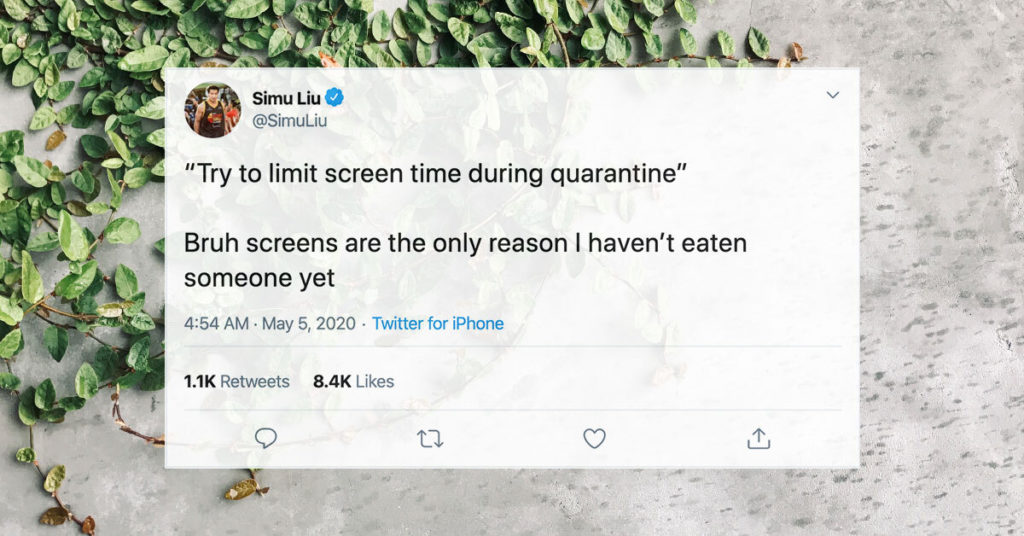
Imagine yourself waking up on a Sunday morning. There are so many possibilities for the day. Do you want iced or hot coffee? Will you do your laundry earlier or later? Maybe you’ll stay in bed until lunchtime.
Then suddenly you get the notification that you weren’t prepared for—the Screen Time report. It’s started making weekly appearances just in time to jolt you out of your Sunday slumber. Ever wanted to know how many times you picked up your phone in a day? Screen Time is always watching you, tracking all of your questionable phone usage.
Now that you know exactly how it feels to be shamed by your own device, also know that you aren’t alone. As the COVID-19 pandemic continues, screen time usage has gone up considerably. According to Pew Research Center, prior to the pandemic, Americans age 18-29 were on their phones 48% of the day. During the pandemic, Statista reported that 70% of smartphone users have increased their screen time.
It makes total sense that we’d want to feel connected during a time where social distancing is mandatory. The constant scrolling through Instagram and TikTok is not only something to do, it also feels like it’s connecting us to others.
However, all of this time spent on our phones can take a toll on our physical wellbeing. Headaches and eyestrain are typically the first signs of overuse even if you are doing your best to combat this with frequent breaks and blue light blocker glasses.
Your sleep is likely suffering, too. According to the National Sleep Foundation, adults need on average 7-9 hours of sleep per night. Using phones before bedtime suppresses melatonin, keeping the brain alert and you awake. Then comes back problems and the dreaded text neck, a fun new term for the pain that comes from looking down at your screen too often.
It’s not just physical. Mental health is a proven side effect of prolonged screen time. The FOMO you experience from seeing celebs quarantining on yachts or the anxiety from not hearing from your crush can manifest into stress and depression directly correlated with time spent on the phone.
To combat stress, the CDC recommends you take deep breaths, meditate, eat healthy well-balanced meals, exercise, and limit the consumption of alcohol. They also suggest that while you practice social distancing, you continue to stay in contact with family and friends.
Going on walks, cooking banana bread, giving up on the third puzzle of the month or just going for a drive are all great quarantine activities that don’t involve your phone. Try to create a schedule with small goals for yourself and check them off when they are complete—even if all you’ve done that is make your bed.
And finally, don’t be so hard on yourself when your iPhone calls you out on Sunday mornings—we’re all just doing our best!

Nicole Hazlett
Juniperus Intern
Nicole is graduating from GCSU in Milledgeville with a major in Mass Communication. Georgia born and raised, she always knew Atlanta was where she would start her adult chapter of life. She is incredibly passionate about any and all forms of writing. Growing up, she always had her head in a book and now she hopes to write the book.
